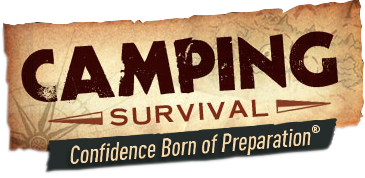A recession is an economic downturn where national GDP falls for two quarters in a row. What does that mean to you? Quite a bit.
During our last recession from December 2007 to June 2009, most Americans were unprepared for what was ahead. Most would say “how do we prepare for something like this?” That’s a great question, and we will tell you how.
First, it’s important to know that recessions don’t just come out of nowhere. They take time to identify.
In fact, we do not actually know we are in a recession until the National Bureau of Economic Research (a private, nonprofit group of economists) declares a recession has begun. It typically takes months, if not a year, for the group to announce that exact timeline. For example, they declared in December of 2008 that the Great Recession began in December 2007.
To say a recession is when things are bad economically for America isn’t totally accurate. Typically, a recession begins when things simply are not as good as they were.
So, knowing all of that, how do you prepare for a recession?
- Pay Your Debt Down
- Credit card debt: Pay this down as quickly and as much as you can so you have a little “wiggle room” in your finances.
- Mortgage: Being ahead in mortgage payment will help you quite a bit when you do not have a job and a way to pay it. Some suggest paying three months ahead, but now that we see what a pandemic can do, something along the lines of six to nine months may be better.
- Auto loans: Paying off your car completely may not be an option, but making some payments ahead can really put your mind at ease when layoffs come and you are left with a car payment, along with everything else.
Prioritize eliminating high-interest debt as much as possible, and especially for those items (house, car) that you need to survive. Set aside or keep at a minimum the ones that are not a priority such as student loans.
- Have Emergency Savings
 Long gone are the days of having only two months salary in the bank. Economist state having at least six months, if not a year’s salary is much better. Today the cost of living is quite a bit more, and as the pandemic has shown us, many things can go wrong when it comes to jobs, unemployment, and just getting by day to day.
Long gone are the days of having only two months salary in the bank. Economist state having at least six months, if not a year’s salary is much better. Today the cost of living is quite a bit more, and as the pandemic has shown us, many things can go wrong when it comes to jobs, unemployment, and just getting by day to day.
Even while you pay down debt, you should have a certain amount of money set aside every month for your emergency fund. This money shouldn’t be touched by anyone unless a decline is occurring, someone loses their job, or a medical situation comes up where employer pay isn’t an option.
- Significantly Reduce Spending
Go through one month of your expenditures and find ways to cut back on them. Anything discretionary needs to be removed. All subscription services, dining out, alcohol, and anywhere else you can cut monthly spending should be on the table.
When you sit down to do this, keep the figure you’d like to pay monthly in mind and then cut down to it.
- Create a Budget
While you’re cutting out discretionary items, it is time to make an actual budget you can stick to. Start with the must-haves like your house and car, then add in insurance, food, and other important items.
Keep in mind your discretionary items should not be over 30% of your net income. If it is over that, then go back to #3 and start cutting them out.
- Investments
Whether you have been at your company for eight years or 20, you will want to keep putting that money into your retirement. Even when the stock market looks bad and it appears you’re losing money, it is a wonderful time to buy, so keep your investment in place and make plans for your future retirement.
- Plant a Garden
 It sounds simple, but it sure saved our grandparents and great-grandparents when the Great Depression hit in 1929. This is when we valued gardening, canning, storing, and keeping food for longer periods of time. It is when we planted and harvested our food because if we did not, we did not eat.
It sounds simple, but it sure saved our grandparents and great-grandparents when the Great Depression hit in 1929. This is when we valued gardening, canning, storing, and keeping food for longer periods of time. It is when we planted and harvested our food because if we did not, we did not eat.
Plan out the items you want to plant and where to plant them. Make the investment in a canning book, canning jars, and the other items you will need to properly store food and grow it yourself. There is great pride in being self-sufficient.
- Meat
During this period, we are going through a meat shortage. How impactful that ends up being on our day-to-day lives remains to be seen but finding another place besides a grocery store to get your meat is a good idea.
Local butchers have meat available, and if you have room and ability to care for an animal, raising it to be food for your family is a great way to make sure you have meat on the table.
Hunting is also a great idea. Getting the license and hunting for food will make you proactive in ensuring your family has food on the table when times are rough.
While this isn’t everything you’ll need to survive a recession, it will certainly put you on the right track to handle life’s challenges without doing too much damage to your family and finances.


8 comments
I grew up eating almost no meat at all,we practialy lived off our garden, we canned,froze,or stored all our produce, and our main protein was plant based beans,whole graing,with a few eggs from our chickens, on sundays we had a chicken dinner.
Rollin is correct. It takes a 7 year budget plan to become debt free. This coming from a tither with kids in private school. Together we were making $60.00 a year and still paid off all (Credit cards, mortgage & vehicles), in 7 years. Yes we also had a food garden, chickens and my husband harvested a deer every season. But we didn’t eat out, go to movies, have the newest phones or technology. We camped with our kids for vacations or visited the Great Lakes. We actually learned the Christian path to become debt free from Larry Brickett. He has now passed, but Dave Ramsey shares the same path. You can’t out give God. Be faithful with your tithes.
Already ahead of this plan. It can be done. House is paid off. Paid off credit card and closed the account. If you don’t have money in your pocket, you can’t afford it. Big garden planted and picking beans and squash now. Other stuff due in shortly. Will put up most of what we pick and it will last us a little over a year. Chickens are doing well. Getting enough eggs to supply 3 families. I still have to get more “meat stock” in. I’m going to live trap some rabbts, which I have in abundance and try to set up a reproducing colony. Currently feeding the clan of raccoons here. If need be, I’ll harvest them. Wouldn’t hurt if I thinned out the squirrel population either.
The garden and growing food is the best advice …should focus on that ….try to find plants and seeds ….even if you plant in empty buckets …money is no good if there’s no food..and you left out medical supplies stock up on your medicines you need …
What good does paying ahead on your mortgage do? Being serious here, a mortgage unlike a car lone is reduced on the long end, not monthly, so even if you pay 12 months ahead, you have reduce your mortgage, and interest, but that is at the end, you still own a payment the next month, not 12 months from now. So realistically speaking, you pay three months ahead, you still ow a payment the next month and you now do not have the three months money you spent to save for emergencies. Bad advice for short term problems, that is a long term investment strategy to pay off a mrtgage earlier, not help you in a short term survival situation.
Hunting isn’t something to start learning to do during a situation like we are moving into, even experienced hunters don’t always score, I have been hunting for over 50 years, and it is almost a religion for me, and I am skunked a lot of times, and I am a good hunter. Now imagine thousands of people that already hunt out there, plus, add thousands more who decide to start in the hopes of finding food, the odds are bad enough for a beginner, let alone competing with old timers. Game would be almost non-existent in a matter of weeks, and people would end up shooting each other. one doesn’t learn how to hunt by grabbing a gun and heading to the woods, and learning during this type of episode is a tragedy waiting to happen.
Most of the advice in this article is long term, investing, first you have to spend money you might not have in abundance and then wait for a few dollars each month (maybe) in profit, LONG TERM, gardening, one doesn’t just plant seeds and have food soon, it takes months of working in the garden and a degree of knowledge to make it successful and the season has to be right to even plant, so gardening is long term. Having savings takes time to build up, paying debt down takes money you could put in savings, good ideas, but more so to be practiced all along, not just during a hard time. This article is more of a decent what you should do all the time article than how to deal with an immediate emergency.